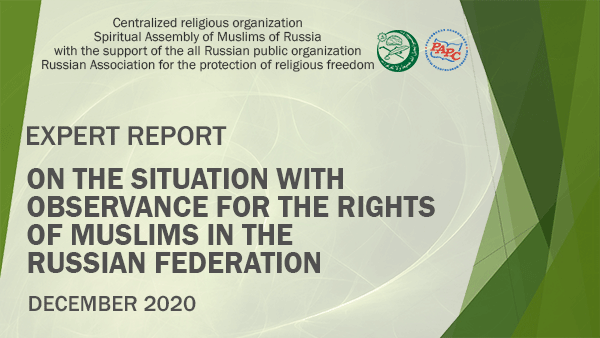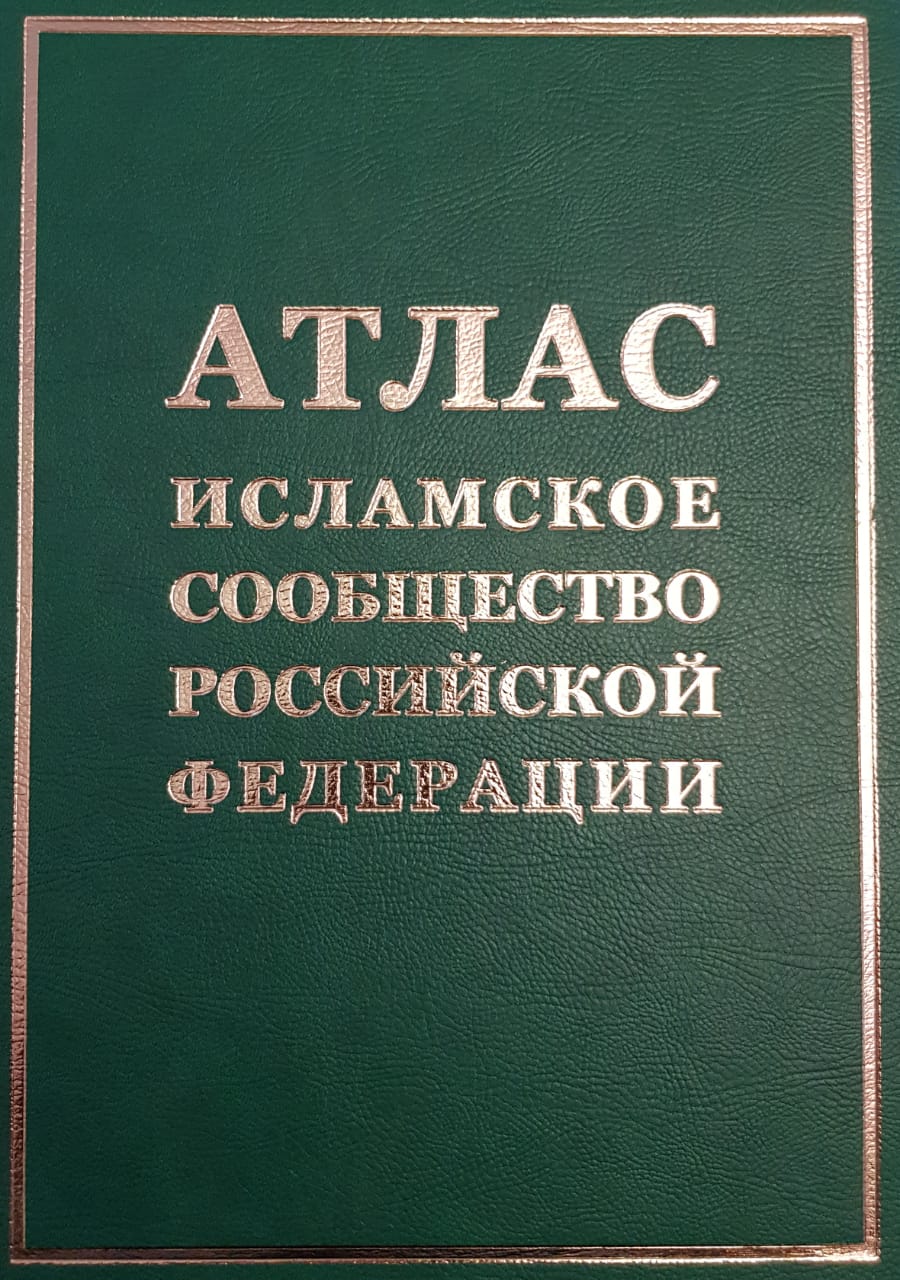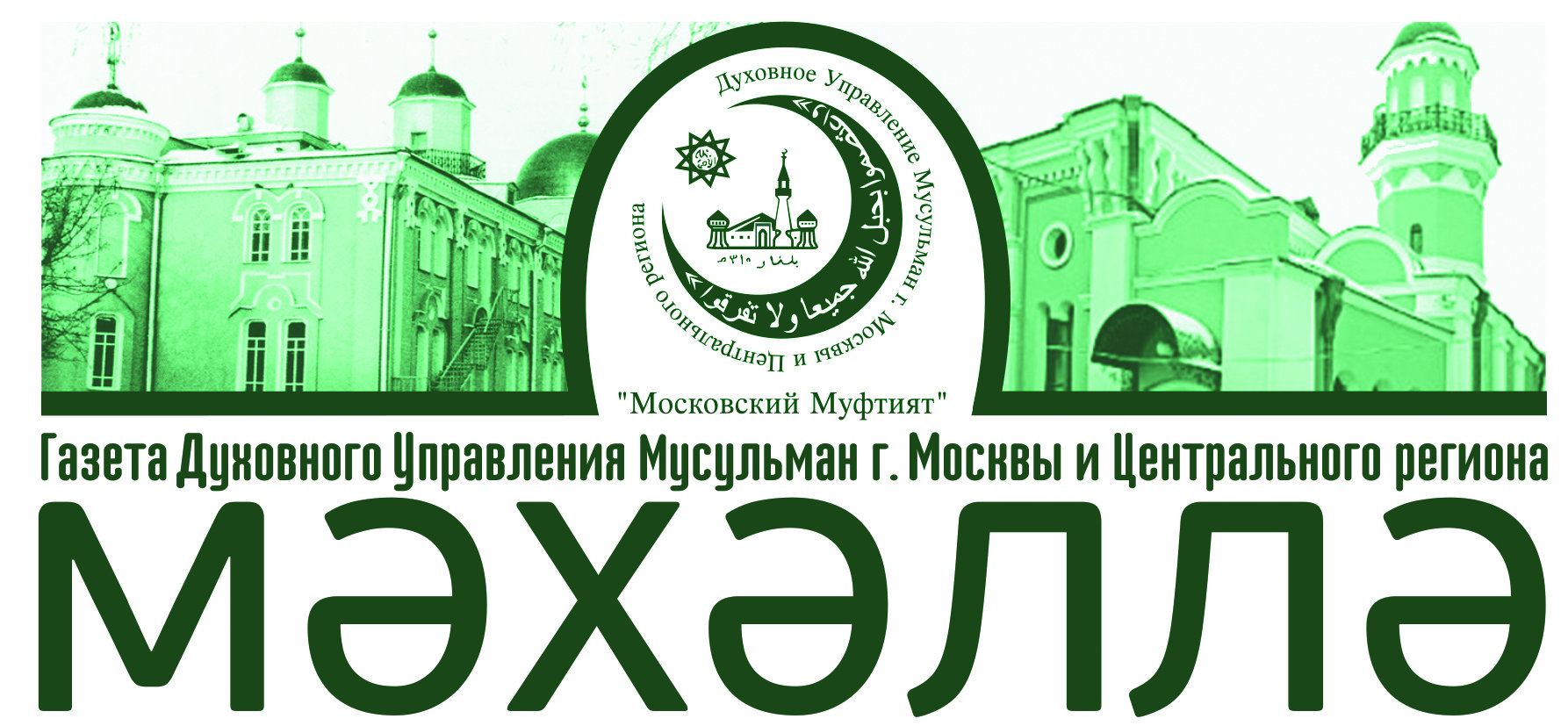Spiritual Assembly of Muslims of Russia represented by mufti Albir hazrat Krganov and Autonomous Non-Commercial Organization “Russian Quality System” (Roskachestvo) represented by its head Maxim Protasov signed the Agreement on cooperation for the development of market of halal products and services in Russia. One of the main areas of joint activity under the Agreement is accreditation of certification agencies according to the halal standard on a state level, training of relevant specialists, monitoring of compliance of halal goods production in accordance with Islamic law.
The signing of the agreement took place during a press conference held on December 14 in Moscow at the TASS press center with the participation of the head of Russian Quality System (Roskachestvo) Maxim Protasov, the head of Spiritual Assembly of Muslims of Russia, mufti of Moscow Albir hazrat Krganov and the deputy head of the Federal Accreditation Service (RusAccreditation) Alexander Solovyov.
The head of Roskachestvo Maxim Protasov noted: “Now there is something that stops this market from active development both in Russia and abroad. This factor is the lack of infrastructure that causes consumer distrust. We are absolutely sure that through building the right infrastructure, through expanding the shelves for halal products, through clear and fair labeling it is possible to double the current 1.5% share of halal products in our country in three years. we are talking about the domestic market,” he said.
Speaking about the supply of Russian halal products to the foreign markets, Protasov said that the work done by Federal Technical Regulation and Metrology Agency (Rosstandart) with the RusAccreditation, Roskachestvo, the Ministry of Agriculture and representatives of Muslim religious organizations should lead to a significant increase in the share of domestic products in the Middle East market, as well as in the markets of Asian countries. “I am absolutely sure that systematic work on inclusion in international organizations and standardization, which is done by Rosstandart, agreements being signed by RusAccreditation, and the recognition of our certificates and standards on the global market, should lead to an increase in the supply of Russian halal products by at least 2.5 times,” said the head of Roskachestvo.
He also said that within the framework of the Halal Competence Center of Roskachestvo, there will be created a subordinate certification body with a branch network in Russia: “Now the documents for its creation are ready. It will be called “Roskachestvo. Halal”. We are confident that this body will be able to issue the first certificates in the first quarter of next year,” said Maxim Protasov.
The head of the Spiritual Assembly of Muslims of Russia, mufti of Moscow Albir hazrat Krganov noted in his turn that in current situation, when Russian economy pays more attention to the countries of the East and Asia, the topic of production and export of halal products from Russia has become relevant. However, there was no sufficient overall coordination in the sphere of halal among the Muslim structures of the country. According to Albir hazrat, the number of halal products and the demand in other countries for it is growing day by day. Foreign partners ask for a uniform Russian label of compliance with the criteria, which are to be determined by the standard. This will have a significant positive income on the image of Russia in the international level in this area.
“We may consider this moment to be a historical one for our country. The production of halal products has received attention from government bodies. By signing this agreement, we are planning to improve the certification of bodies and organizations that will be able to certify halal products in their turn. In addition, we are sure that the certification of manufacturers according to the halal standard will allow us to raise the authority and confidence in Russian products in international trade markets,” said mufti.
A new structure has appeared within Roskachestvo most recently - the National Competence Center in the sphere of halal products and services, headed by Marat Nizamov, Deputy Chairman of the Project Technical Committee 704 “Halal Products and Services” under Rosstandart.
Albir hazrat emphasized “This center also has competence in technology, in Sharia law. It will provide support and assistance to all halal manufacturers in this regard, will help in the sale of halal products, in building relationships with consumers, with foreign countries. Also, manufacturers of halal products in Russia may receive other preferences under the recommendation of this center”.
“Many countries of the Islamic world have state authorities regulating halal products with the advice of specialists in Islamic law. It’s not that the state authority takes this sphere for itself, on the contrary, it will provide support in the development of the halal industry. The religious component of this sphere will be provided by religious organizations, but at the same time, the halal committees of the regions will have to raise their level of competence and responsibility,” said Albir hazrat. That is why the Spiritual Assembly of Muslims of Russia, at the request of its centralized partner Muslim organizations of Russia, decided to initiate the creation of this structure. With the participation of state institutions and with a systematic approach to the topic of halal, there will be much more advantages than disadvantages.
In his speech, another participant in the press conference, Deputy Head of the Federal Accreditation Service (RusAccreditation) Alexander Solovyov, said that the national halal accreditation system in Russia could be launched in 2023 based on the three national standards that are currently being developed.
“We must develop our own Russian unified standards. Now, at the final stage, we are developing and agreeing on the main three national standards, and based on them we will be able to launch our national halal accreditation system next year. Thus a national system will begin to form, and in the event of further negotiations we can show it as an example that we comply with these requirements," said Alexander Solovyov.
Solovyov noted that the volume of the global halal market is huge, and Russian exporting companies see a large growth potential in this direction. But each country is different in terms of halal requirements, and, according to him, domestic exporters, when supplying their products to any country, solve the issues of certification and conformity assessment. “In order for Russian certificates to be recognized in foreign countries, it is necessary to build relations with each country or association separately,” he said.
“When another country allows its products to the market, first of all it looks at how the internal system of quality control and confirmation of the relevant requirements is arranged. And here, indeed, we need to build our own system, because now we have about 40 systems of voluntary certification, and there is no unified system and a guarantor-supervisor among them who can say that they indeed all meet the high halal requirements and are under supervision,” the deputy head of the Federal Accreditation Service concluded.
At the end of the event, the mufti once again emphasized: “I would like to make it clear that the fact that Roskachestvo signs an agreement with Spiritual Assembly of Muslims of Russia does not mean that some kind of monopoly of our organization is being introduced in this area and the agreement clearly states this. In addition, the Federal Antimonopoly Service of Russia (FAS) supervises the market. On the contrary, we are fully open to cooperation; the doors of the center are open to the halal committees of the spiritual administrations of the Muslims of our country. Many muftiats and colleagues supported us and reacted to this decision with a deep understanding of the need for changes and standardization in this sphere.”







